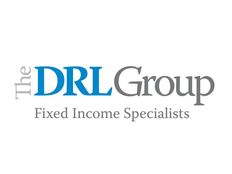
Submitted by Tax Free Municipal Bonds/Fixed Income Specialists/DRL Group on July 9th, 2020
Rates have fallen so low that America’s states and cities are embracing a refinancing boom that seemed to disappear after Trump was elected, and for the first half of this year. Barclays boosted its forecast for taxable municipal bond sales this year to as much as $115B up from $90B. Taxable Muni’s have jumped +380% this year as compared to last. Tax-exempt paper has also increased by about 25% for the balance of the year.
Two US Senators are advancing legislation that would subsidize the interest on bonds sold by state and local governments for infrastructure projects. This bill would seek to make direct payments to the issuer at 35% of debt service after the enactment passes. It is the first bill of its type, where language indicates "direct payments” are made on behalf of the issuer.
Seven more municipal issuers disclosed yesterday that they are filing for default due to the virus. All of these are uninsured and low rated—nearly 25% of the impaired bonds, primarily for hospitals, project facilities, and Continuing Care Centers sold in 2017. We do not trade in this market, and I predict you will see many more like this file.
Trading desks are, for the most part, light in inventory. I spoke with multiple dealers yesterday, all indicating that buying muni products is not the problem; keeping it in inventory is the issue due to the mountains of cash in the street. Bonds are trading very quickly because of this point. As we move into the next three weeks, I anticipate markets getting slightly tighter, with prices continuing to move up due to lack of product.
10-year yields have effectively been unchanged since late May at about .8% and just about at the record lows established before the pandemic. Mutual funds continue to draw in massive amounts of cash each week, and the volatility of MUNI’s has slipped to the lowest since 2001.
It feels like we are in the eye of a storm with the lack of reaction towards increased COVID cases across the US. Congress should push out another package soon; this one directed towards municipalities and states. This discussion has been ongoing for a while, with no concrete results. Once the government got into the “do what it takes mode,” many investors have become “comfortable” with where we are and how we have “gotten” here.
MTA will issue $500MM of Bond Anticipation Notes and $600MM of mandatory tender bonds next week. S&P has lowered the rating to BBB+ from A- and removed the “negative watch." This underwriting is the second-largest bond issue in the last few months; the first issue was uninsured, a 5.375% coupon, with an extended maturity. I suspect that MTA will receive money from one of these stimulus packages as well.
I believe overall rates will continue to be +/-15bpps from here. We are in an excellent trading range and will remain here for the summer.
Chicago expects to turn to the muni market to refinance debt later this year using some of those savings to cover city budget shortfalls. I anticipate many cities to be doing the same in the coming months, particularly as we return to a “normal” lifestyle and economy.
NYC indicated that no commercial building construction would be shuttered due to COVID. There is a massive development around Penn Station, clearing the way for a 14MM sq. ft project of new offices, an enormous addition of space which will accelerate the shift of Manhattan’s core towards the west side of the island.
David Loesch is co-owner, Trader and Fixed-Income Money Manager for The DRL Group






